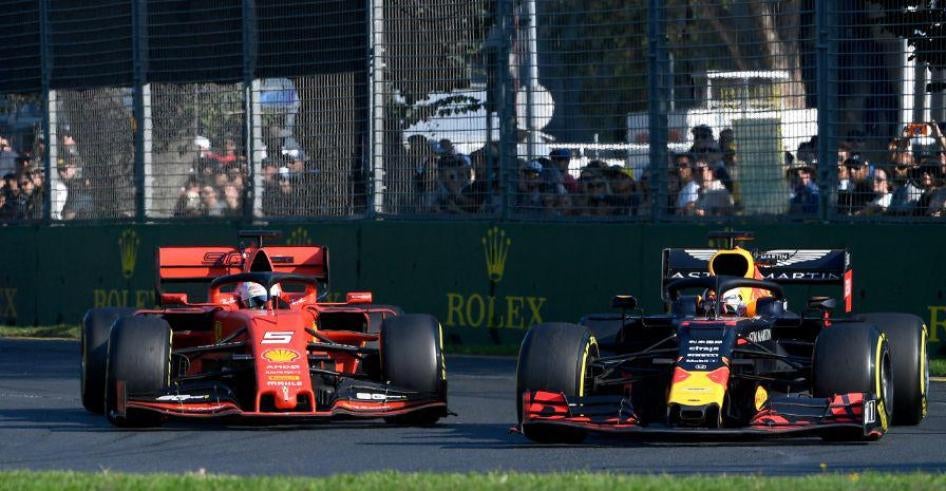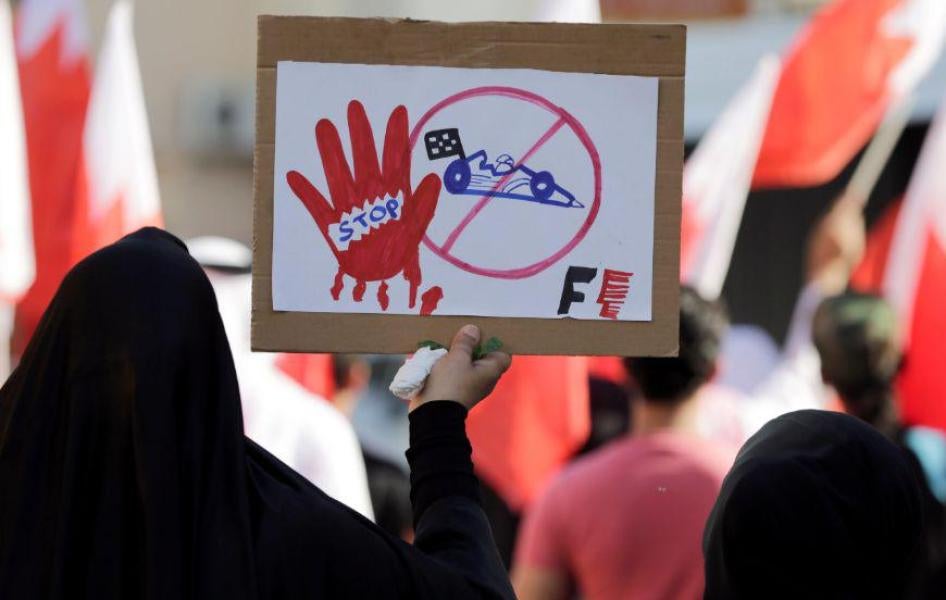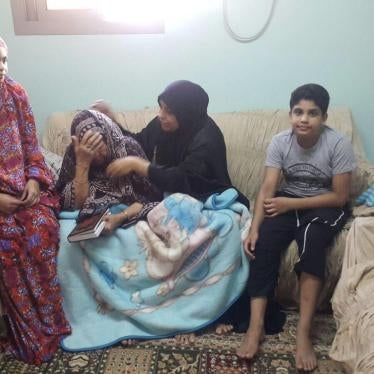Next week, Formula One returns to Bahrain for its high-octane auto race, the Grand Prix. The race sparks protests year after year in Bahrain, as well as in other repressive host countries like Azerbaijan.
Bahraini authorities enjoy these extravaganzas because they distract from their abysmal human rights situation. But Bahrain’s true picture is of arrests, abuse, and torture of peaceful dissidents and members of the opposition and the Grand Prix cannot “sports-wash” this track record away.
Bahraini security forces have arbitrarily arrested many protestors and prominent opposition figures in the lead up to the annual race in Bahrain. Salah Abbas Habib was shot dead by security forces while protesting the Grand Prix in 2012. In June 2018, activist and mother of four Najah Yusuf was detained, tortured, and sentenced to three years in prison for her social media activity, including posts opposing Formula One because of the government’s use of the race to whitewash repression.
The leaders of Formula One and its governing federation, the Fédération Internationale de l'Automobile (FIA) will be celebrating their race in Bahrain – a mere 20 kilometers away from the prison where Yusef is unjustly held. They could and should ask to meet her in prison.
To ensure sports events don’t contribute to human rights abuses, global businesses, and sports federations – including motor racing’s footballing equivalent, FIFA – are increasingly adopting the United Nations Guiding Principles on Business and Human Rights. This helps ensure they properly assess the human rights risks of their operations, and do not further fuel abuses.
Formula One and FIA leaders should follow suit.
Human Rights Watch and 17 other rights groups have written to urge Formula One to use its substantial leverage with press Bahrain’s authorities for change.
Bahrain already tried to export repression beyond its own borders this year when it sought to extradite its former national football player and torture survivor Hakeem al-Araibi from Thailand.
After a global outcry the extradition bid failed, but Bahrain’s abuses are a warning flag.
It is time for Formula One to adopt and implement a human rights policy. And it should start by calling for Yusuf to be freed ahead of the Grand Prix race on March 31.











